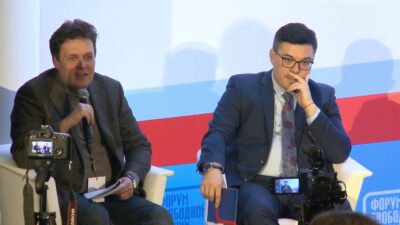The European Union has toughened sanctions against Russia for attacking Ukraine – the previously agreed-upon 11th package goes into effect this week.
It includes a ban on transporting Russian oil through the northern branch of the Druzhba pipeline, restrictions on trucks registered in Russia entering the EU, and measures against circumventing previous restrictions.
“Our sanctions are already taking a heavy toll on the Russian economy and the Kremlin’s ability to finance its aggression. Today’s package increases our pressure on Russia and Putin’s war machine. By fighting to circumvent sanctions, we will increase the pressure on Russia, further depriving it of the resources it so desperately needs to continue waging an illegal war against Ukraine”, European diplomatic chief Josep Borrell said in a statement.
The sanctions imposed on the Druzhba pipeline branch will affect oil supplies to Poland and Germany. As noted by the media, this decision is largely symbolic. The two countries could receive oil through the northern section of the pipeline as an exception and with the permission of the EU, but have already stopped receiving crude oil, fulfilling promises made last year.
The Druzhba oil pipeline, about 4,000 kilometers long, has been used since Soviet times to supply crude to the five EU member countries. Russian crude arrives in Mozyr, Belarus, where the refinery is located, and then splits into two branches – northern and southern (via Ukraine, Slovakia, the Czech Republic and Hungary).
According to the press release, in order to counter Russia’s disinformation campaign, the Council of the European Union initiated the process of freezing the licenses of the Russian-controlled RT Arabic and Sputnik Arabic television stations, which broadcast in Arab countries.
Among those who fell under EU sanctions were Aleksandr Lapin, chief of the General Staff of the Ground Forces; Artem Uss, son of ex-governor of the Krasnoyarsk Territory, who escaped from detention in Italy; several governors; political scientist Sergey Karaganov, who recently called on the Kremlin to launch a nuclear strike on Poland; and military propagandists Yevgeny Poddubny, Andrey Medvedev, Semen Pegov, and Aleksandr Sladkov.
The Russian Defense Ministry’s Zvezda TV channel and the Sverdlov plant were added to the list. A total of 87 enterprises of the military-industrial complex were added to the sanctions list.
In an attempt to limit the ways in which Russia circumvents sanctions, the European Union for the first time announced the possibility of introducing “exceptional, extreme measures” restricting the sale, supply, transfer or export of goods that could strengthen Russia’s military potential to third countries – if there is a high risk that these countries are used to circumvent sanctions.





